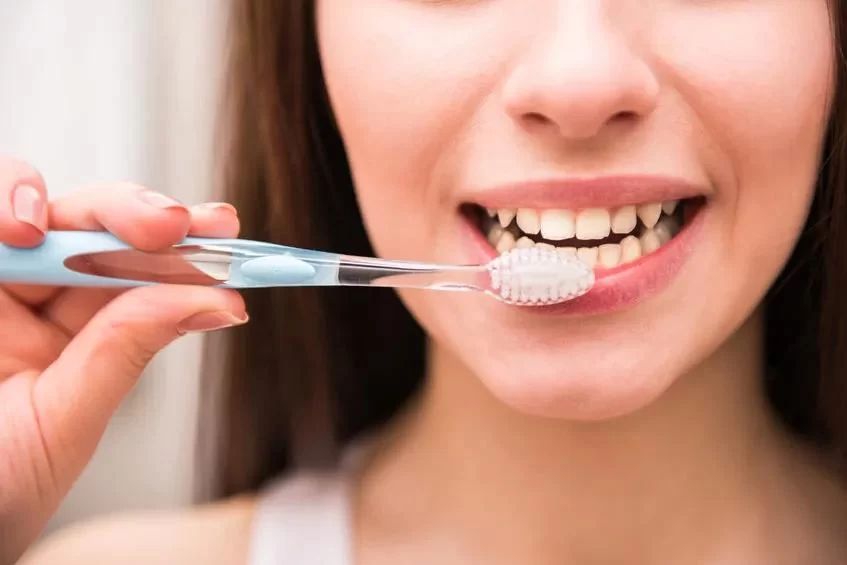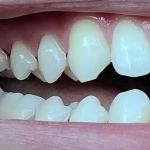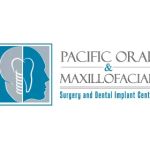
Why It’s Important to Have a Dental Hygiene Routine: Key Benefits for Your Oral Health
- Why Dental Hygiene Matters
- The Key Benefits of Maintaining a Dental Hygiene Routine
- What Happens If You Don’t Follow a Routine
- How to Build an Effective Dental Hygiene Routine
- Tips for Long-Term Dental Hygiene Success
1. Why Dental Hygiene Matters
Most people know that brushing and flossing are important for their teeth, but it’s easy to overlook how essential these habits are for your overall health. Having a consistent dental hygiene routine is not just about having a bright smile. It’s about keeping your teeth and gums healthy, preventing cavities, and reducing your risk of gum disease, which can lead to much more serious health issues like heart disease and diabetes.
The American Dental Association (ADA) recommends brushing your teeth at least twice a day, flossing daily, and visiting the dentist regularly to maintain a healthy mouth. A good routine prevents plaque buildup, which can lead to tooth decay, gum disease, and bad breath.
2. The Key Benefits of Maintaining a Dental Hygiene Routine
Why is it so important to have a dental hygiene routine? The benefits go beyond just keeping your teeth clean. Here’s a look at some of the most important advantages:
- Prevents Tooth Decay: Regular brushing and flossing remove food particles and plaque that, if left untreated, can lead to cavities. By following a dental hygiene routine, you can reduce your chances of developing cavities and save yourself from painful procedures.
- Reduces the Risk of Gum Disease: Gum disease starts with plaque buildup, which can cause gums to become swollen and bleed. Over time, untreated gum disease can lead to tooth loss. A solid dental hygiene routine keeps your gums healthy by removing plaque before it turns into tartar.
- Freshens Your Breath: Bad breath is often caused by bacteria in the mouth. Brushing and flossing remove these bacteria, ensuring that your breath stays fresh throughout the day.
- Saves Money on Dental Treatments: Preventive care is far less expensive than treating tooth decay or gum disease. By maintaining a regular routine, you can avoid costly dental treatments in the future.
3. What Happens If You Don’t Follow a Routine
Skipping your dental hygiene routine might seem like a small issue, but over time, neglecting your oral care can lead to serious consequences. Here are some of the common problems you may encounter:
- Tooth Decay: Without regular brushing, plaque turns into tartar, which harbors bacteria that eat away at your enamel, causing cavities.
- Gum Disease: Plaque buildup along the gum line causes inflammation, leading to gingivitis (the earliest stage of gum disease). If left untreated, it can develop into more serious periodontitis, which may lead to tooth loss.
- Bad Breath: Bacteria from food particles and plaque can lead to persistent bad breath, which can affect your confidence and social interactions.
- Higher Healthcare Costs: Neglecting oral health often results in expensive dental procedures like fillings, root canals, or even tooth extractions. Preventive care is always cheaper.
As with any health habit, consistency is key. Without it, you risk many of these issues that could otherwise be avoided with a simple daily routine.
4. How to Build an Effective Dental Hygiene Routine
Now that we understand why it's important to have a dental hygiene routine, how can you build an effective one? Creating a routine doesn’t have to be difficult. Follow these simple steps to make dental care a regular part of your day:
- Brush Twice a Day: Use a fluoride toothpaste and brush for at least two minutes. Be sure to brush all surfaces of your teeth and your tongue to remove bacteria.
- Floss Daily: Flossing removes food and plaque between your teeth and along the gum line, areas where a toothbrush might miss. Try to floss before brushing to help remove any debris.
- Use Mouthwash: An antimicrobial mouthwash can help reduce plaque and fight bacteria, giving you extra protection between brushings.
- Visit the Dentist Regularly: Even if you follow the best dental hygiene routine at home, regular dental checkups are essential. The ADA recommends visiting the dentist every six months for a professional cleaning and checkup.
Building a routine doesn’t take much time but can make a significant difference in your oral health in the long run. The key is consistency, so make it a habit to care for your teeth every day!
5. Tips for Long-Term Dental Hygiene Success
Consistency is the most important part of maintaining a dental hygiene routine, but here are some additional tips to ensure your routine lasts for the long haul:
- Use the Right Tools: Invest in a soft-bristled toothbrush, fluoride toothpaste, and dental floss. Consider using an electric toothbrush, which can be more effective at removing plaque.
- Stay Hydrated: Drinking plenty of water throughout the day helps wash away food particles and bacteria, making it easier to maintain a clean mouth.
- Teach Your Family: Ensure that everyone in your household, especially children, understands the importance of a good dental hygiene routine. Start teaching your kids early to set them up for a lifetime of healthy habits.
- Reward Yourself: Make your dental hygiene routine more enjoyable by setting milestones and rewarding yourself for sticking with it!
Staying committed to your dental routine will not only ensure a beautiful smile but also improve your overall health. Healthy teeth are essential to maintaining a confident, happy life.
If you’re looking for expert dental advice or products to enhance your dental hygiene routine, visit Dentistry Toothtruth for helpful resources and recommendations.
Want a healthier smile? Start your dental hygiene routine today and see the difference it makes!







 Lakewood Dental Care4.0 (12 review)
Lakewood Dental Care4.0 (12 review) Stephanie Dental Group4.0 (250 review)
Stephanie Dental Group4.0 (250 review) Dean Street Dental5.0 (259 review)
Dean Street Dental5.0 (259 review) Dr. Wayne E. Turk, DMD5.0 (3 review)
Dr. Wayne E. Turk, DMD5.0 (3 review) Smile Central Dental4.0 (506 review)
Smile Central Dental4.0 (506 review) Pacific Oral & Maxillofacial Surgery and Dental Implant Center4.0 (66 review)
Pacific Oral & Maxillofacial Surgery and Dental Implant Center4.0 (66 review) The Importance of Oral Health Education During Pregnancy for a Healthy Pregnancy
The Importance of Oral Health Education During Pregnancy for a Healthy Pregnancy Best Tips for Brushing Your Teeth Properly for Healthy Gums: Essential Techniques for Oral Health
Best Tips for Brushing Your Teeth Properly for Healthy Gums: Essential Techniques for Oral Health Why Skipping Dental Checkups Can Lead to Bigger Oral Health Problems
Why Skipping Dental Checkups Can Lead to Bigger Oral Health Problems Advantages of Porcelain Dental Restorations
Advantages of Porcelain Dental Restorations How Can Diabetes Cause Tooth and Gum Problems? Preventing and Managing Oral Health Issues
How Can Diabetes Cause Tooth and Gum Problems? Preventing and Managing Oral Health Issues Healthy Habits for Promoting Good Oral Health and Hygiene: Tips for a Healthy Smile
Healthy Habits for Promoting Good Oral Health and Hygiene: Tips for a Healthy Smile